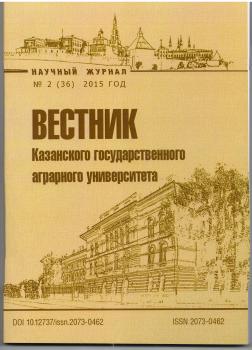The main problem of the innovative activities development in the agro-industrial complex is related to the commercialization of new developments. The development of the agro-industrial complex on an innovative basis, with the prospect of justifying its hopes in the near future, is possible only with the full and comprehensive resource support of this process, which allows it to overcome the features of its inertial, and often stagnant and even regressive character. The active state of innovation policy is a prerequisite for the successful development and commercialization of innovations, the basis for sustainable development of rural areas, improving the quality of life and competitiveness of the domestic producer. Thus, the increase of innovative activity, the formation of the innovation market in the agro-industrial complex should take a central place in the implementation of economic policy. The article considers the main sources of financing innovative activities in the agro-industrial complex, specifies the features of innovative system development of the agroindustrial complex, specifies the need to stimulate innovative activity, taking into account the current conditions for the functioning of the Russian economy.
innovation activity, agro-industrial complex, innovations, financial support, innovative resources.
В сформировавшихся условиях нынешней экономики и значительных темпах развития научно-технического прогресса важным условием является направленность государства на развитие формирования инновационной деятельности в разных секторах экономики. С целью последующего процветания и формирования экономики государству необходимо наибольшее применение инновационных ресурсов как отечественных, так и зарубежных инвестиций, ускорение и увеличение их оборота. При всем этом следует принимать во внимание не только лишь число поступающих инвестиций на развитие государственных инвестиционных проектов, но и инвестиционный потенциал регионов, что и будет гарантом социальной и финансовой стабильности.
Установлено, что в рыночной экономике основную массу изучений и исследований реализовывают коммерческие компании, т.к. инновационная деятельность - довольно капиталоемкая процедура, компании неизбежно сталкиваются с необходимостью поиска подходящих структур источников финансирования. Финансирование в развитых государствах осуществляется как из частных, так и из государственных средств. Для большинства стран Западной Европы и США характерно, примерно, равное распределение финансовых ресурсов для научно-исследовательских и опытно-конструкторских работ (НИОКР) между государственным и частным капиталом.
Мировое сообщество встречается с рядом трудностей в формировании инноваций агропромышленного комплекса. Главная из них связана с коммерциализацией новых разработок, мало кто понимает о коммерциализации своих идей. Например, в Израиле легко патентуют всё без исключения с прицелом на возможный интерес со стороны инвесторов в будущем. С другой стороны, неплохие идеи требуют проведения дополнительных исследований, что не финансируются Центром трансфера и коммерциализации агротехнологий [6].
Одним из проблем является отсутствие прямой связи между учеными и бизнесом. В Австралии все решается при помощи levy-налога, который удерживается с дохода сельхозпроизводителей и равен 40-50% от финансирования научный исследований, а остальная часть идет из государственного бюджета. Это дает возможность сохранять взаимосвязь между интересами бизнеса и инициативами ученых [5].
Анализ и обсуждение результатов. Проанализировав данную перспективу, в первую очередь стоит отталкиваться от того, что спрос всегда будет на натуральные продукты питания и с каждым годом он возрастает. При этом потребители готовы платить больше, в случае если товар на самом деле натуральный. Именно поэтому проблемы спроса на конечный продукт, который выпускается на рынке АПК, не будет. В связи с этим обстоятельством сельскохозяйственный сектор весьма заманчив для тех, кто намерен получить стабильный доход.
Кроме того, инвестиции в сельское хозяйство заметно развивают ситуацию в стране, постоянно растет продовольственный запас, осуществляется значительный вклад в экономическое развитие, а самое главное создаются новые рабочие места.
1. Voitleva Z.A. Development of the organizational and economic structure of Russina agrarian economy. [Razvitie organizatsionno-khozyaystvennoy struktury agrarnoy ekonomiki Rossii]. / Z.A. Voitleva // Diskussiya. Discussion. - 2012. - №4(22). - April. - P. 42-45.
2. Golubev A.V. Osnovy innovatsionnogo razvitiya APK: Monografiya. [Fundamentals of innovative development of the agroindustrial complex: Monograph]. / A.V. Golubev. M.: Izd-vo RGAU-MSKhA, 2015. - P. 373.
3. Valieva G.R., Fayzrakhmanov D.I., Khazeev L.F. Estimation of economic risks at the enterprises of the agro-industrial complex. [Otsenka ekonomicheskikh riskov na predpriyatiyakh agropromyshlennogo kompleksa]. // Vestnik Kazanskogo gosudarstvennogo agrarnogo universiteta. - The Herald of Kazan State Agrarian University. - 2016. - №1(39) - P. 104-108.
4. Valieva G.R. On the issue of strategic development of the Republic of Tatarstan. [K voprosu strategicheskogo razvitiya Respubliki Tatarstan]. // Aktualnye problemy gumanitarnykh i estestvennykh nauk. - Actual problems of the humanities and natural sciences. 2017. - №2. P. 25-27.
5. Zaytseva Yu.A. Osuschestvlenie prioritetnykh napravleniy innovatsionnogo razvitiya v agropromyshlennom komplekse. [Implementation of priority directions of innovative development in the agro-industrial complex]. / Yu.A. Zaytsev // Ekonomika i menedzhment innovatsionnykh tekhnologiy. - Economics and management of innovative technologies. 2012. - №5. - May. Available at: http://ekonomika.snauka.ru/2012/05/816.
6. Mannapov A. R. Management system of innovative activity in the organization. [Sistema upravleniya innovatsionnoy deyatelnostyu v organizatsii]. / A. R. Mannapov // Problemy teorii i praktiki upravleniya. - Problems of theory and practice of management. - 2013. - №6. - P. 98-104.
7. Reymer V. V. Innovative system of Russia: problems of management and prospects. [Innovatsionnaya sistema Rossii: problemy upravleniya i perspektivy]. / V. V. Reymer // Mezhdunarodnyy selskokhozyaystvennyy zhurnal. - International agricultural journal. - 2013. - №2. - P. 3-6.
8. Fedorenko V. F., Buklagin D. S., Aronov E. L. 33 Innovatsionnaya deyatelnost v APK: sostoyanie, problemy, perspektivy: nauch. izd. [Innovative activity in the agroindustrial complex: state, problems, perspectives: scientific publication]. - M.: FGNU “Rosinformagrotekh”, 2010. - P. 280.
9. Formirovanie regionalnoy innovatsionnoy sistemy. Opyt Altayskogo kraya. [Formation of a regional innovation system. Experience of the Altai Kray]. / M.P. Schetinin and others; under the editorship of M.P. Schetinin; Administration of Altai Kray, The main department of economy and investments of the Altai Kray. - Barnaul: Litera, 2012. - P. 215
10. Mark Van Osnabrugge, Robert J. Robinson.Angel Investing: Matching Startup Funds with Startup Companies - The Guide for Entrepreneurs and Individual Investors. - San-Francisco: John Wiley & Sons, 2000. - S. 40-41. - 448 s.- ISBN 0-7879-5202-8.
11. Investopedia (internet-resurs o finansakh - Internet resource about finance).





